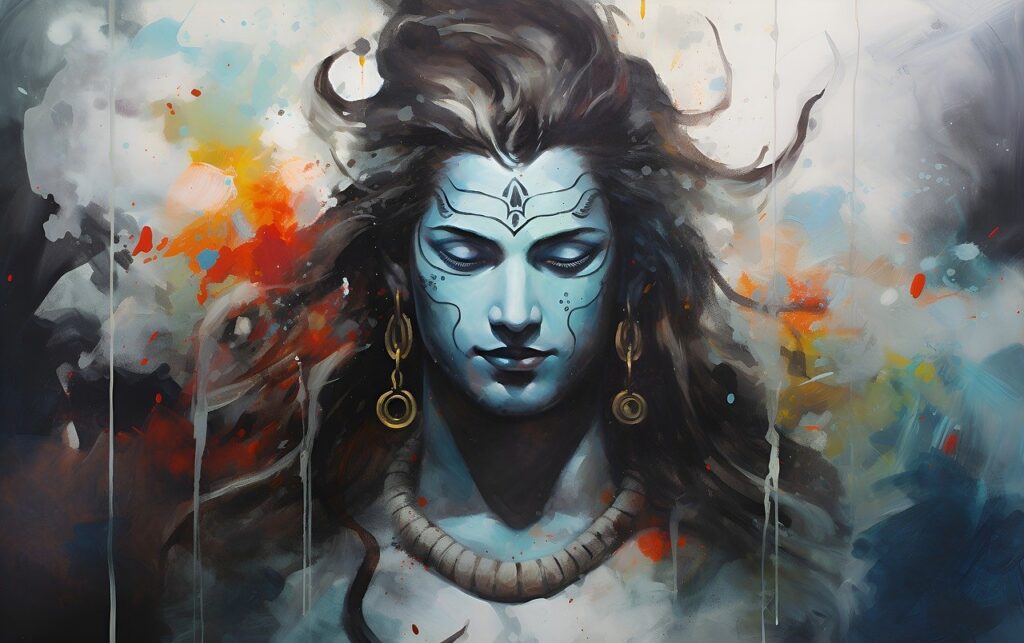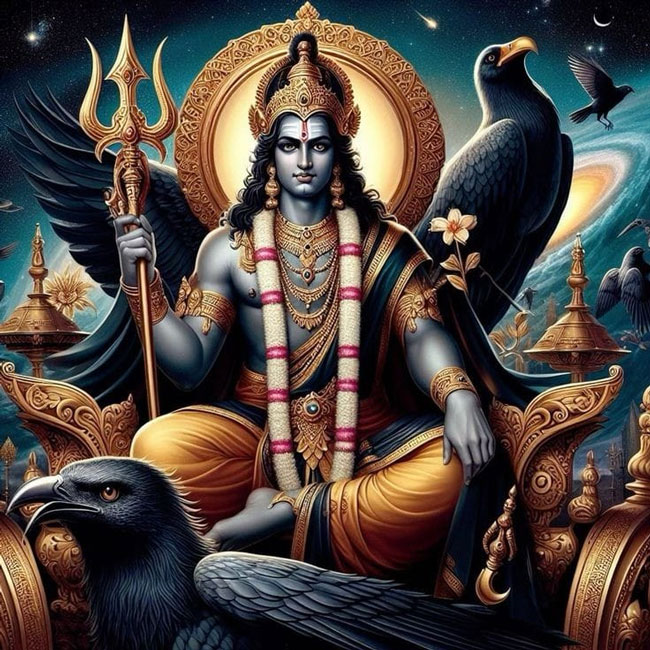Is it right to have Shiva Idol at Home? Understanding Traditions
The world of Hinduism is rich with deep traditions and profound symbolism, particularly when it comes to its deities. Among them, Lord Shiva holds a special place as the destroyer and transformer within the divine trinity. For many devotees, having a representation of this powerful deity in their home can be both an honor and a source of spiritual connection.
But the question arises: can we keep Shiva idol at home? This inquiry goes beyond mere curiosity; it taps into cultural beliefs, rituals, and guidelines that govern how one should treat such sacred symbols.

As we delve deeper into this topic, we’ll explore important festivals like Kartik Purnima and Dev Uthani Ekadashi that celebrate Lord Shiva. We’ll uncover his history and symbolism while discussing proper placement for idols in your space. Additionally, you’ll learn about worship practices that enhance devotion towards him. Join us on this enlightening journey to understand heart of Shiva.
Is It Appropriate to have a Shiva Idol at home?
In Hindu tradition, housing a Shiva idol can be seen as both a privilege and a responsibility. Lord Shiva is revered not just for his power but also for the wisdom he imparts to his devotees. Having an idol at home serves as a constant reminder of spiritual goals and values.
However, it’s essential to approach this practice with respect and understanding. Each family may have its own beliefs about keeping religious symbols in their space. This varies based on cultural backgrounds, ancestral practices, and personal convictions related to spirituality.
Many consider having a Shiva statue beneficial due to its auspicious nature. It symbolizes transformation, purity, and meditation—qualities that many seek in their daily lives. Therefore, placing such an idol thoughtfully can create positive energy within the household.
That said, specific guidelines should be followed when housing any deity’s idol at home. Understanding these rules helps ensure that your devotion aligns with traditional practices while fostering harmony in your living environment.
Kartik Purnima and Dev Uthani Ekadashi Rituals
Kartik Purnima is a significant day in the Hindu calendar, marking the full moon of November. Dev Uthani Ekadashi follows closely after, celebrated on the 11th day of Shukla Paksha in Kartik month. Together, these days are vital to many devotees and signify deep spiritual meaning.

During Kartik Purnima, people engage in various rituals like bathing in sacred rivers. This auspicious act is believed to purify the soul and wash away sins accumulated over time. In temples across India, special prayers are conducted for Lord Vishnu’s awakening from his long slumber.
Dev Uthani Ekadashi honors this awakening by encouraging devotees to observe fasts and perform prayers with sincerity. Many believe that their wishes will be fulfilled if they dedicate themselves wholeheartedly during this time. Homes light up with lamps as families come together for prayer sessions.
These rituals not only strengthen faith but also foster community spirit among worshippers. They remind individuals of their responsibilities toward spirituality while offering an opportunity for reflection and growth within personal practices related to devotion.
History and Symbolism of Lord Shiva
Lord Shiva, one of the principal deities in Hinduism, embodies both destruction and regeneration. He is often depicted with a third eye, representing wisdom and insight beyond ordinary perception. This unique feature symbolizes his ability to see past illusions and unveil deeper truths.
His association with the crescent moon signifies time’s cyclical nature and the balance between creation and destruction. The Ganga flowing from his matted hair illustrates purity; it reminds devotees of life’s transformative power through spirituality.

Shiva’s divine consort, Parvati, represents Shakti or feminine energy, emphasizing balance within existence. Their union illustrates that creation requires harmony between masculine and feminine forces.
Moreover, Shiva’s role as a yogi highlights meditation’s importance for spiritual growth. His deep connection to nature showcases simplicity while demonstrating how material detachment can lead to enlightenment. In essence, Lord Shiva serves as a profound symbol of life’s dualities—destruction gives way to rebirth—and encourages followers on their path toward self-realization.
Are you looking for right direction for Ganesh Laxmi Idol at your Home? I have written an article on Ganesh Laxmi Idol placement as well.
Proper Placement of Shiva Idol at Home
Choosing the right spot for a Shiva idol at home is essential. Ideally, it should be placed in a clean and sacred space to maintain respect for the deity. Many prefer to find a quiet corner or room dedicated solely to worship. This helps create an atmosphere conducive to meditation and prayer.
The northeast direction is considered highly auspicious for placing a Shiva statue. This position allows positive energy flow into your home while fostering tranquility and peace. Avoid darker areas or spaces cluttered with distractions; these can impede spiritual connection.
Ensure that the Shiva idol at home is at eye level when you sit down for prayers or rituals. This makes it easier to engage during offerings and enhances your devotional experience. A stable base will help prevent any accidents or damage over time, which is crucial in maintaining its sanctity.

Consider using natural elements around the idol—like flowers, water, or stones—to enrich the setting further. These additions not only beautify but also symbolize purity and devotion, creating an inviting environment for worshipping Lord Shiva continually.
Rules and Guidelines for Keeping a Shiva Idol at Home
When keeping a Shiva idol at home, certain rules and guidelines are essential to follow. First, ensure that the idol is made from appropriate materials like marble or brass. Avoid plastic or synthetic materials as they may not convey the sanctity associated with worship.
Placement holds great significance. The ideal location for your Shiva idol at home is in a clean and quiet area of your home, preferably in a designated prayer room or altar space. It should face east or north to allow positive energy flow during prayers.
Regular maintenance is vital for honoring Lord Shiva properly. Keep the idol dust-free and cleaned regularly using water and natural cleaning agents. It’s important to maintain an inviting atmosphere around the idol by ensuring that it is surrounded by flowers, incense sticks, or diya lamps.
Avoid placing any other deities too close to the Shiva idol unless it’s within a well-defined altar setup. Respecting space between idols emphasizes their individual significance while enhancing spiritual harmony within your home environment.
How to Worship Lord Shiva
Worshiping Lord Shiva is a deeply personal and spiritual practice that varies among devotees. One common way to honor him is through daily prayers and recitations of sacred texts like the Shiva Purana or Mantras such as “Om Namah Shivaya.” These chants can help establish a connection with the divine energy of Lord Shiva.
Creating a clean and dedicated space in your home for worship enhances the experience. This area should be calm, free from clutter, and adorned with flowers or incense to invoke purity. A small altar can hold his idol or picture, along with offerings like fruits, milk, or water—items cherished by Lord Shiva.
On specific days like Mondays or during auspicious festivals such as Mahashivaratri, special rituals are observed. Many devotees perform abhishekam by pouring holy water over the idol while chanting mantras. This act symbolizes purification and devotion.
Lighting oil lamps and offering bilva leaves (leaf from the Bael tree) are also significant gestures during worship sessions. Each element serves to express reverence while inviting blessings into your life—making your connection with Lord Shiva even more profound.
Significance of Shiva Idol in Hindu Beliefs
The significance of a Shiva idol in Hindu beliefs cannot be overstated. Lord Shiva, known as the destroyer and transformer, represents the cycle of creation and destruction. His presence in a household is believed to bring peace, prosperity, and spiritual growth.
Many devotees feel that having a Shiva statue at home creates an aura of tranquility and positivity. It serves as a reminder to maintain balance between materialism and spirituality. The idol becomes a focal point for worship, meditation, and reflection.
In Hindu tradition, each detail associated with Lord Shiva has deep meaning. The trident symbolizes power over fear; the snake represents control over ego; while the crescent moon signifies time’s cyclical nature. Together, these elements remind us of life’s impermanence. Keeping a Shiva idol at home can personify these qualities in you.
Moreover, performing rituals around the idol can strengthen familial bonds through shared devotion. Festivals like Maha Shivaratri further enhance this connection by encouraging collective worship among family members.
For many believers, keeping a Shiva idol at home isn’t just about aesthetics—it’s about fostering an environment rich in spirituality and divine energy that nurtures personal growth within their lives.







